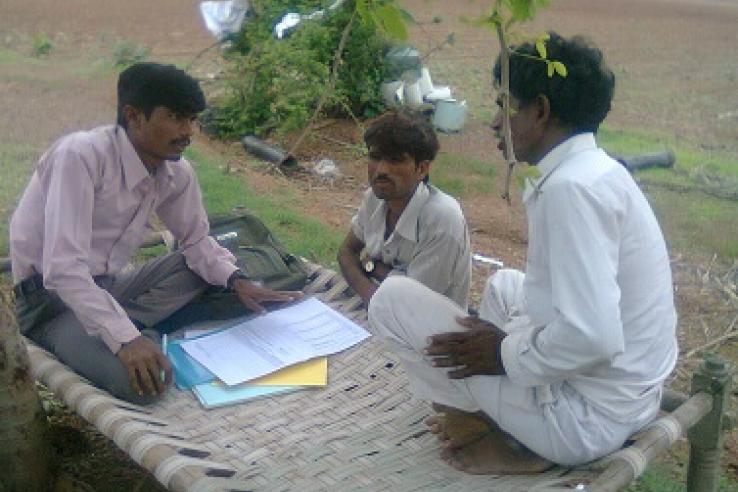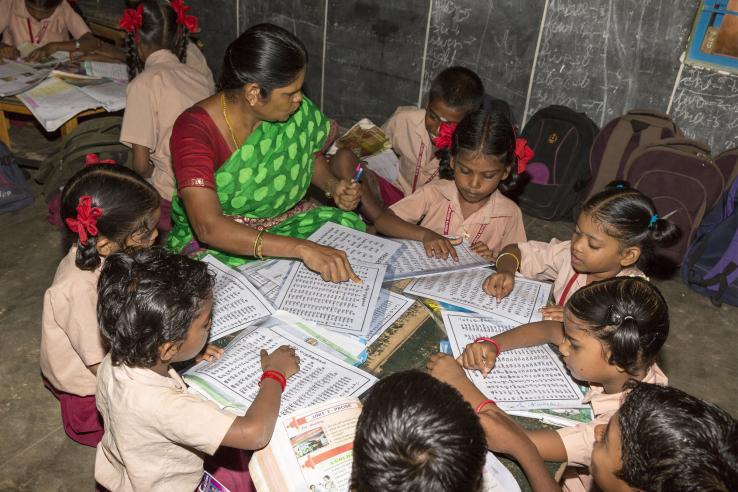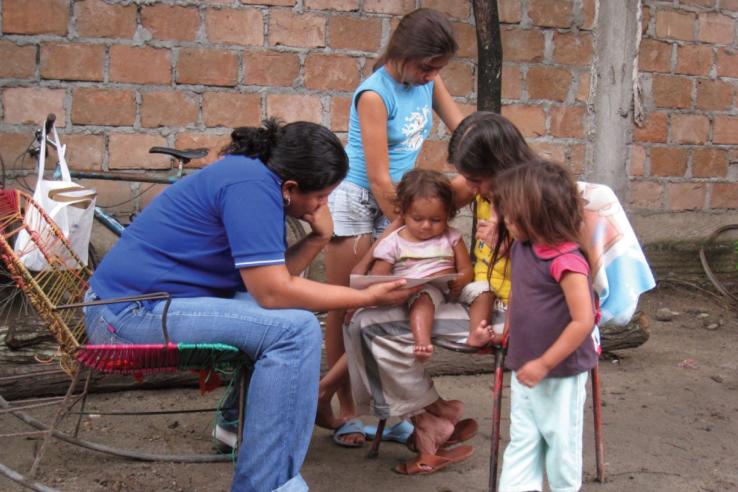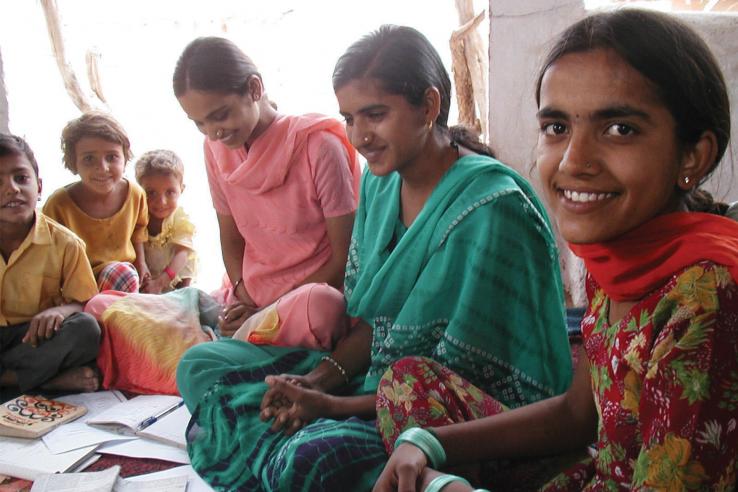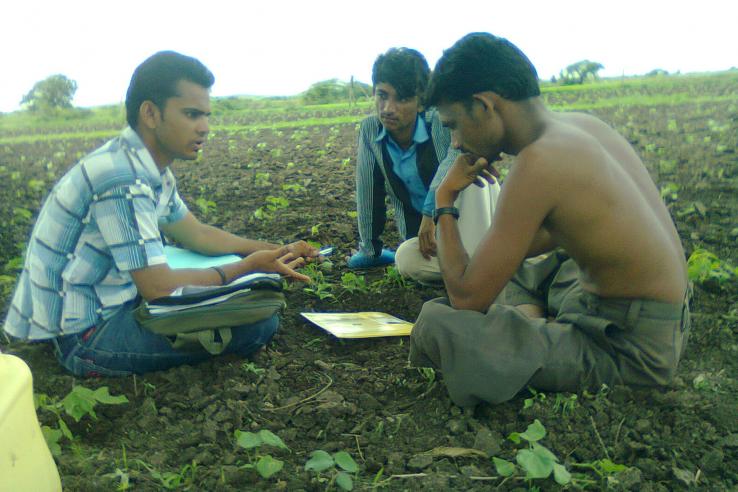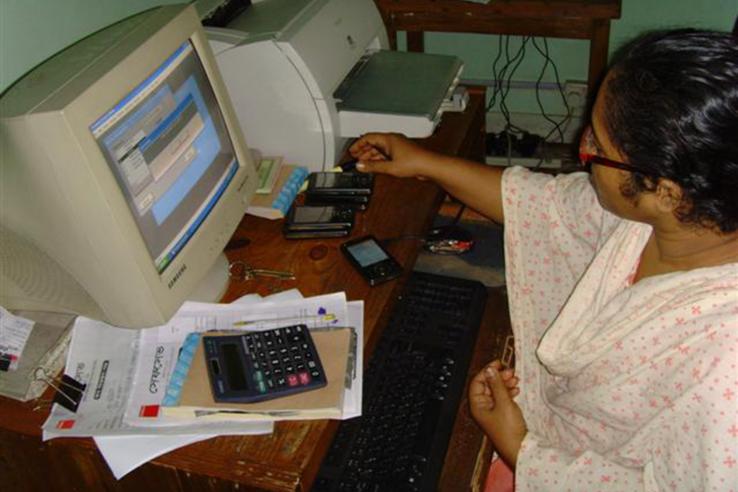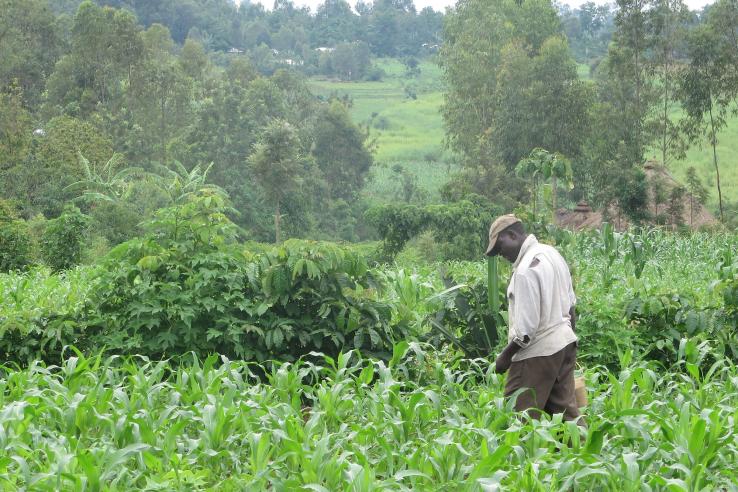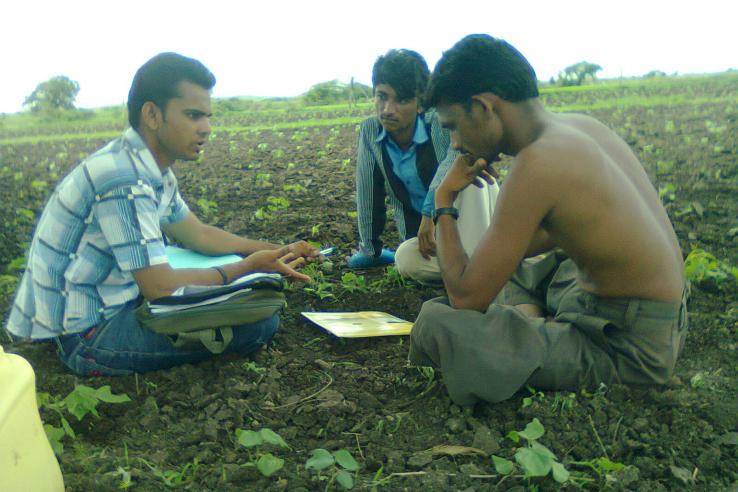Displaying 4141 - 4155 of 8182
Person
Evaluation
In Ghana, researchers evaluated the impact of performance pay on worker productivity. They found that neither individual nor group incentives impacted productivity, work quality, or firm profitability.
Evaluation
Researchers conducted a randomized evaluation to test how informal insurance within Indian sub-castes affected the demand for formal rainfall insurance, and subsequent risk-taking among households employed in agriculture. Informal insurance both increased and decreased the demand for formal rainfall insurance, depending on the extent to which informal and formal insurance covered individual losses.
Person
Hafizh Fakhrizal Winarno is a Research Associate at J-PAL Southeast Asia, where he works on a stunting prevention project in Indonesia.
Evaluation
Researchers studied how a school grant program affected learning outcomes and household spending. After the first year of the grant program, students in treatment schools performed significantly better than those in comparison schools, but by the end of the second year, there was no detectable impact on student learning.
Evaluation
Early childhood is an important time for both physical and neurological growth and development, but many children fail to reach their development potential. Researchers introduced an early childhood development program in Colombia to test the effects of psychosocial stimulation and micronutrient supplementation on cognitive, behavioral, and physical growth and development. Psychosocial stimulation initially showed positive effects on cognitive growth, although the micronutrient supplementation had no effect. However, a follow-up study showed that the results on cognitive growth disappeared two years later.
Evaluation
Researchers provided three years of recruiting services to help young women in randomly selected rural Indian villages get jobs in the business process outsourcing industry. Women who had access to these recruiting services were significantly more likely to be employed outside the home at the end of the three-year period and significantly less likely to have gotten married or had children.
Evaluation
Smoking and drinking are two of the most important risk factors explaining early mortality, accounting for an estimated 14 percent of deaths among youth worldwide. In the Dominican Republic, researchers examined the effect of increased schooling and decreased work on smoking and drinking behavior among secondary school-aged boys. Youth with more schooling were much less likely to smoke at age 18 and began drinking at a later age, although by age 18 they drank just as much as boys with less schooling.
Evaluation
A number of low-income countries subsidize the price of staple foods such as rice in an effort to improve nutrition, and these programs generally enjoy great public support. However, subsidizing staple foods may cause households to shift to their spending to better-tasting foods that are actually less nutritious. In China, researchers analyzed the impact of food subsidies on nutrition and found no evidence of a positive impact. In fact, the subsidies may even have caused some households to consume fewer calories and important vitamins and minerals.
Person
Cristián Ugarte holds a Bachelor degree in Economics from Catholic University of Chile and is currently studying a Masters degree in Economics at the same university. He joined J-PAL in 2010 to work in a project on information and parent's decision of high school enrollment.
Evaluation
Researchers introduced a mobile phone-based agricultural extension service to evaluate its impact on knowledge and adoption of effective farming methods among cotton farmers in Gujarat, India. They found that the service was highly effective in nudging farmers to adopt a number of recommended agricultural technologies, like fertilizer, pesticide, and improved seed varieties, but had no measurable impact on farmers’ yields or profits.
Evaluation
Researchers partnered with a commercial bank in India to study the effect of paying loan officers according to the performance of their loans on the quality of their lending decisions. Loan officers working under this incentive scheme exerted greater screening effort, approved fewer loans, and increased their average profit per loan. An alternative incentive scheme which rewarded loan volume rather than quality had opposite effects.
Evaluation
Researchers randomly evaluated whether well-timed access to credit would allow maize farmers in Kenya to make better use of storage and sell their output at higher prices. The loan offers allowed farmers to store more maize and earn higher revenues, with larger revenue impacts for farmers granted loans immediately following harvest and in areas where a smaller share of farmers was offered loans.
Evaluation
Researchers conducted a randomized evaluation to test the impact of providing financial literacy education alongside various marketing strategies to small-scale farmers in Gujarat, India, on their demand for rainfall index insurance. Financial education had a significant effect on adoption of rainfall insurance, but was not a cost-effective way to raise demand.

